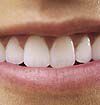Oral health is often a window to overall health. Evidence supports the link between poor oral health and such conditions as stroke, premature birth and diabetes. Other conditions, such as HIV/AIDS and osteoporosis, may show preliminary signs in your mouth before other areas of the body are affected. Also, some of your daily activities or habits can affect your oral health. Therefore, it pays to pay attention to your teeth and gums.
Here are some things most people don’t know about teeth.
First, millions of Americans can crack a walnut with their teeth. While most adults exert about 20 to 40 pounds of pressure when their teeth make contact, millions of Americans exert as much as 250 pounds of pressure on their teeth – enough to crack a walnut. These teeth grinders are known as bruxers. Bruxism may be mild and may not even require treatment. However, it can be frequent and severe enough to lead to damaged teeth, jaw disorder, headaches, and other problems. To prevent damage to the teeth, mouth guards or appliances have been used to treat teeth grinding and clenching.
Next, Bulimia and acid reflux can destroy tooth enamel. Many people suffering from bulimia are able to hide the disorder from others but it is more difficult to keep it a secret from your dentist. Enamel erosion is a major sign of bulimic behavior. And acid reflux, whereby stomach acid flows into the esophagus and mouth, can cause tooth and gum erosion.
Up for a swim? Well then you need to know that swimming in an overly chlorinated pool can wear away the enamel in frequent swimmers. Fluoride treatments can be given to help keep the teeth strong. Swimming with a well-adapted and custom-fitted mouth guard, which can minimize exposure of teeth to chlorine, also helps.
The only natural drink in the world is water. Soda and citrus drink overuse can be caustic to tooth enamel. The average American drinks more than 53 gallons of soft drinks each year, more than any other beverage, including milk, beer, coffee, or water. Phosphoric acid in soda and citric acid in citrus drinks can cause tooth enamel corrosion and the sugar can cause cavities.
Gum disease is prevalent in the population. Eighty percent of Americans over the age of 35 have some form of gum disease. It can range from simple gum inflammation, called gingivitis, to serious disease that results in damage to the bone. In gingivitis, the gums become red and swollen. They can bleed easily. Untreated gingivitis can lead to periodontitis, in which the gums pull away from the teeth and form pockets of infection. If ignored, the bones, gums and connective tissue supporting the teeth are destroyed.
False teeth are not all that uncommon. One in four adults age 60 and older has lost all of his/her teeth. A good oral hygiene program should include twice daily brushing, flossing, eating a balanced diet, limiting between-meal snacks, and regular visits to your dentist for professional cleaning and oral exams.
What most people don’t know about their teeth

